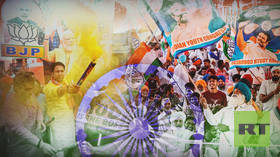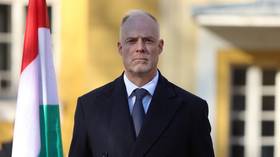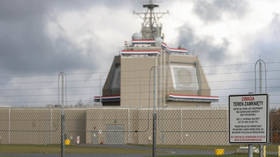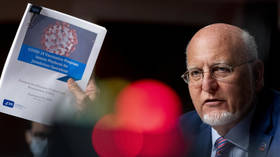Modi begins historic third term as India’s PM
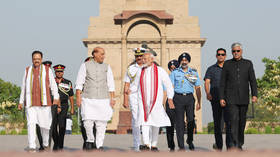
Narendra Modi, leader of the Hindu nationalist Bharatiya Janata Party (BJP), has been sworn in as the prime minister of the world’s most populous nation for a third consecutive term.
Modi has now become the first Indian premier to serve three consecutive terms since Jawaharlal Nehru, who led the country from independence in 1947 until his death in 1964. Nehru led the Indian National Congress (INC), which is now the largest opposition party. Modi took the oath of office in the presence of Indian President Draupadi Murmu.
The BJP emerged with a plurality in the recently concluded election, winning 240 seats in the 543-member parliament. However, as it failed to cross the majority threshold on its own, it now has to contend with its allies’ demands. Some of them have asked for high-level cabinet posts as the price of staying in the BJP-led National Democratic Alliance (NDA) bloc. The NDA as a whole secured 293 seats.
⚡️🇮🇳 India Ushers In New Chapter in its History - Prime Minister Narendra Modi Sworn In pic.twitter.com/izVEIXHVqJ
— RT_India (@RT_India_news) June 9, 2024
A resurgent opposition INDIA bloc, led by the Congress Party, was not too far behind, winning 232 seats. According to Indian media, the opposition bloc reportedly reached out to some of Modi’s key allies, including Bihar Chief Minister Nitish Kumar, leading Janata Dal (United), and incoming Andhra Pradesh Chief Minister Chandrababu Naidu of The Telugu Desam Party (TDP) to possibly form a government. However, both leaders confirmed their support for the NDA, and Modi was unanimously elected as its leader on Friday.
On Saturday, Modi held a marathon 11-hour meeting with allies at his residence to form the new cabinet. He has asked the newly proposed ministers to “focus on government” and ensure “projects are finished on time.”
Key members of the previous cabinet, including Home Minister Amit Shah, Defense Minister Rajnath Singh, Roads and Highways Minister Nitin Gadkari, Finance Minister Nirmala Sitharaman and Foreign Minister Subrahmanyam Jaishankar, as well as BJP President J. P. Nadda took the oath as federal ministers on Sunday. Most of them have retained their portfolios, according to Indian media.
Leaders from several neighboring countries, including Bangladesh, Sri Lanka, Bhutan, Nepal, Mauritius, and Seychelles, were present at the inauguration.
Notably, Maldives President Mohamed Muizzu, who is seen as pro-China in New Delhi, attended the ceremony in what was seen as a symbolic move amid tense relations with the island nation. It was Muizzu’s first visit to India after his election as president on November 17 last year. He stated that he looked forward to working with Modi to further strengthen ties between the two countries, describing the relationship as heading “in the positive direction.”
The swearing-in was also attended by prominent Indians from various fields, including lawyers, doctors, artists, cultural performers, and influencers. According to Indian media, employees of Indian Railways, sanitation workers, laborers, and tribal women were also invited.
Where India Meets Russia: Follow and share RT India on X and Instagram
